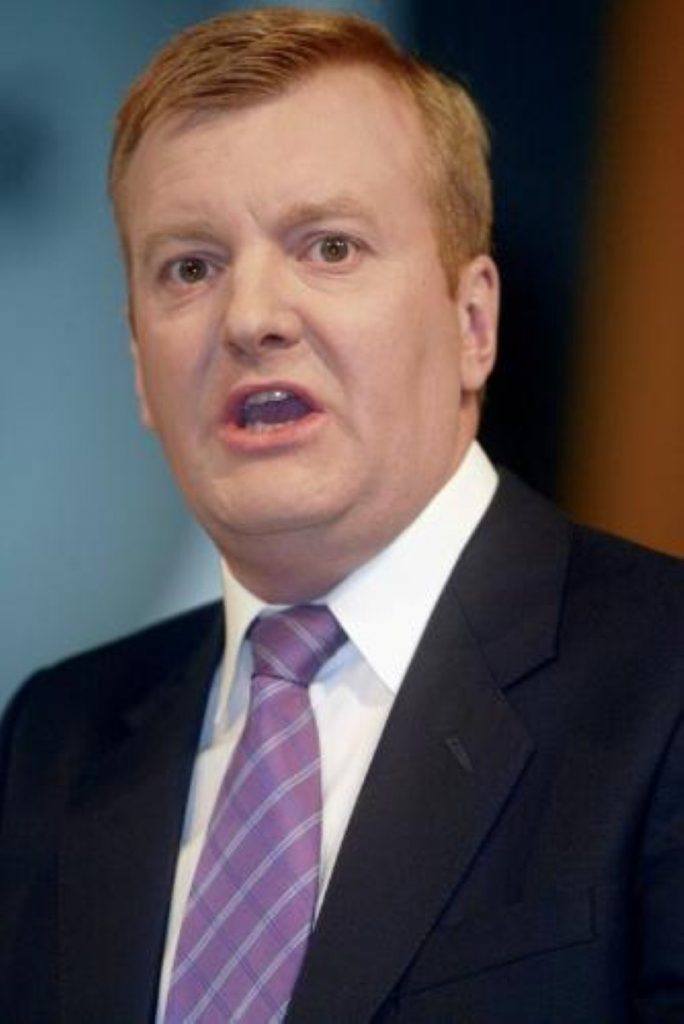Kennedy: Fear should not be used to curb civil liberties
In a speech to party activists the Liberal Democrat leader, Charles Kennedy, has warned that fears about crime or terrorism risk undermining essential human rights.
Speaking at the National Liberal Club, Mr Kennedy warned that: “In this post 9-11 world, a climate of fear is being created which is being used to threaten our civil liberties.
“Extraordinary threats – like those posed by international terrorism – may require us, in times of emergency and for limited periods, to find a different balance between our hard won liberties and our security.
“But the correct response to such threats should not be, as the current Home Secretary appears to think, the abandonment of some of the liberties that generations of Britons have relied upon.”


The Conservatives also came in for criticism following suggestions that they might seek to repeal the Human Rights Act. Mr Kennedy defended the act, saying: “The Human Rights Act is a shield against the tyranny of majorities and the abuse of public powers. It enables British courts to provide effective remedies for the abuse of power by public authorities.
“In framing our response to new threats, such decisions should be carefully argued and pursued with widespread support; they should not be implemented in a rush. For hard won rights once lost, may never be regained. We should always be vigilant that powers granted to Government and its agencies through our law making process are limited to the problem they are designed to address.”
Addressing the fight against terrorism, the Lib Dem leader stressed that he had supported much of the Government’s legislation, “but at the same time we say that any curtailment of our civil liberties should also only be justified in exceptional circumstances and then subject to strict review and limited timescales.
“This is common sense. And it is not sufficient for the Government to respond by suggesting that we are not taking the threats seriously. We must never be seduced into setting aside our critical faculties by superficially attractive and populist measures which fail to solve the problem that they seek to address, while infringing individual rights in other areas.”
He explicitly stated concerns about the indefinite detention of suspects in Belmarsh prison and stop and search powers. On the latter, he said: “There is widespread evidence that the stop and search powers brought in under the Terrorism Act – subject to rolling authorisation and limited to times of heightened risk – have been misused by the police.
“Section 44 of this Act has also led to a 300 per cent increase in the number of Asian people being stopped.”
He warned that “unless Section 44 is more carefully applied, we run the risk that interference with individual liberty outweighs the benefits in terms of crime detection” and pointed to the “dismay” caused by the legislation in Muslim communities who “feel justly aggrieved that due process is being set aside”.
Mr Kennedy added that: “It is just plain daft to alienate communities that can be of particular help in identifying and exposing terrorists, by the injudicious application of police powers.
He also signalled his party’s continued opposition to identity cards, saying: “Just as the reasons we went to war in Iraq seem to change day by day, so have the justifications for the introduction of identity cards.
“Fraud, access to public services, illegal immigrants, terrorism, general law and order. Each argument deployed at a different time depending on what is in the headlines.
“Without a clear definition of objectives, we have little chance of applying the proportionality test. Will an identity card system provide such benefits that the threat to civil liberty is worth risking?
“Given this Government’s record on Information Technology projects, who can trust the current costings from the Home Office which estimates a cost of up to £3 billion over 10 years on this project?” he concluded.

